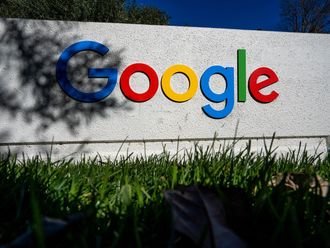Brussels: Germany and France are exploring radical methods of securing deeper and more rapid fiscal integration among Eurozone countries, aware that getting broad backing for the necessary treaty changes may not be possible, EU officials say.
Germany's original plan was to try to secure agreement among all 27 EU countries for a limited change to the Lisbon Treaty by the end of 2012, making it possible to impose much tighter budget controls over the 17 Eurozone countries — a way of shoring up the region's defences against the debt crisis.
But in meetings with EU leaders in recent weeks, it has become clear to both German Chancellor Angela Merkel and French President Nicolas Sarkozy that it may not be possible to get all 27 countries on board, EU sources say.
Even if that were possible, it could take a year or more to finally secure the changes while market attacks on Italy, Spain and now France suggest bold measures are needed within weeks.
As a result, senior French and German civil servants have been exploring other ways of achieving the goal, either via an agreement among just the Eurozone countries, or a separate agreement outside the EU treaty that could involve a core of around 8-10 Eurozone countries, officials say.
Overhaul
No firm decisions have yet been reached.
Reuters exclusively reported on November 9 that French and German officials were discussing plans for a radical overhaul of the European Union to establish a more fiscally integrated and possibly smaller Eurozone.
"The Germans have made up their minds. They want treaty change and they are doing everything they can to push for it as rapidly as possible," one senior EU official involved in the negotiations said. "Senior German officials are on the phone at all hours of the day to every European capital."
Forceful action
While Germany and France are convinced that moving towards fiscal union — which could pave the way for jointly issued Eurozone bonds and may provide more leeway for the European Central Bank to act forcefully — is the only way to get on top of the debt crisis, some other Eurozone countries are unable or unwilling to move so rapidly towards that goal.
Not only Greece, Ireland and Portugal, which are receiving EU/IMF aid, but also Italy and Spain and some east European countries such as Slovakia, would either find it difficult under current econ-omic conditions to meet the budget constraints Germany wants, or simply do not agree with the aim.
Consequently, the French and German negotiators are exploring at least two models for more rapid integration among a limited number of Eurozone countries, with the possibility of folding that agreement into the EU treaty at a later stage.
Two models
One is based on the Pruem Convention of 2005, also known as Schengen III, a treaty signed among 7 countries outside the EU treaty but which was open to any member state to join and was later acceded to by five more EU states plus Norway.
Another option would be to have a purely Franco-German mini-agreement along the lines of the Elysee treaty of 1963 that other Eurozone countries could also sign up to, officials say.
"The options are being actively discussed as we speak and things are moving very, very quickly," a European Commission official briefed on the discussions said.
One source said the aim was to have the outline of an agreement set out before December 9, when EU leaders will meet for their final summit of the year in Brussels.
Herman Van Rompuy, the president of the European Council, which represents EU member states, is supposed to deliver a preliminary report on treaty change at the summit. He has held extensive talks with EU leaders in recent weeks to gauge the feasibility of bringing about rapid treaty changes.
Sarkozy, who has made two speeches in the past two weeks highlighting the need for more rapid fiscal integration in the Eurozone, and has acknowledged that it may be inevitable that a ‘two-speed Europe' emerges, is due to make another keynote address on December 1 which could provide a platform for laying out in more detail the ideas that he and Merkel are developing.












